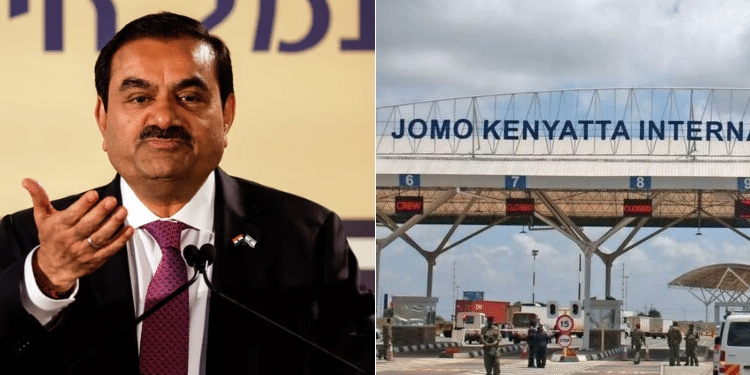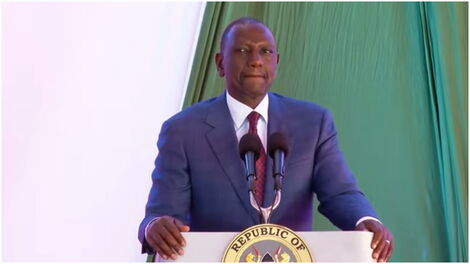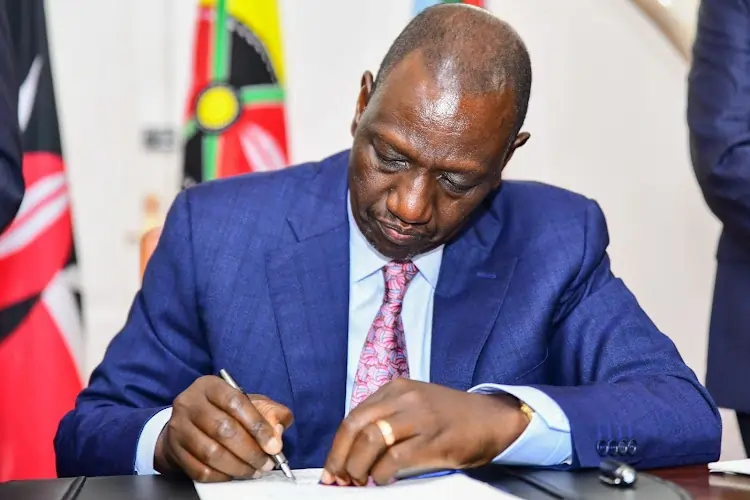Kenya has quietly cancelled a multi-billion-shilling deal aimed at implementing an advanced electronic border management system, marking another controversial procurement that was scrapped without public disclosure.
The move has sparked concerns over transparency and potential financial losses to taxpayers, reminiscent of the previous Adani-JKIA deal and Adani Energy Solutions controversy.
Disclosures by the Public Private Partnership (PPP) Unit of the National Treasury reveal that the project, dubbed the Next-Generation Integrated Border Management System, was secretly terminated in October 2024.

Gautam Adani, chairman of Adani Enterprises Ltd., speaks during an interview in Mumbai, India, on Tuesday, May 31, 2011. Photographer: Adeel Halim/Bloomberg via Getty Images
The agreement, much like the earlier Adani deal, was structured as a privately initiated investment where the contractor would build the infrastructure and recoup costs either through government payments or user fees.
While details remain scarce, sources indicate that the deal was set to cost taxpayers billions before it was discreetly shelved.
This secrecy has reignited fears that Kenya was on the verge of another costly procurement scandal similar to the Adani-JKIA airport expansion project, where the government faced significant backlash for engaging Indian multinational Adani Group without competitive bidding.
There have also been persistent rumors that Guantum Adani, a firm linked to Gautam Adani, could be behind SHA—the entity that reportedly facilitated the project, which saw the government commit Ksh 104 billion.

Adani Group boss (L), JKIA (R) Photo: Citizen Digital Source: Facebook
The cancelled platform was meant to integrate immigration, customs, border patrol, and intelligence units, facilitating real-time data sharing to enhance security at Kenya’s porous borders.
It was expected to feature self-service passport control kiosks equipped with facial recognition technology and an Electronic Travel Authorization (eTA) system that replaced visas last year.
Despite its potential benefits, the abrupt cancellation without explanation has raised eyebrows.
Immigration Principal Secretary Julius Bitok had championed the system as a crucial security upgrade, stating that it would enable authorities to track visitors, their accommodation, and overall movements to enhance national security.
However, with no official reasons given for its cancellation, suspicions persist that the project might have been marred by procurement irregularities or excessive costs.

William Ruto delivers a keynote speech during a past event. Photo: Tuko Source: Instagram
This development follows President William Ruto’s decision in late 2024 to cancel various contracts with Adani Group, including the JKIA expansion and a mega power transmission project.
His administration faced immense public pressure and scrutiny after allegations of bribery and corruption surrounding Adani’s global operations surfaced.
The US had also indicted Adani’s associates for corrupt dealings, adding to the controversy.
Kenya continues to grapple with border security challenges, particularly with its long, largely unmonitored frontiers with Somalia, South Sudan, and the Democratic Republic of Congo.

These porous borders have facilitated the smuggling of narcotics, arms, and even human trafficking, amplifying calls for tighter restrictions.
The failed electronic border system was initially positioned as a major step toward modernizing Kenya’s border control in line with global standards.
Many developed nations already rely on automated systems to track travelers and flag suspicious movements in real-time, a feature Kenya sought to adopt.
However, the secrecy surrounding both the procurement and cancellation of the deal has fueled speculation about vested interests and potential financial mismanagement.
Amid these developments, Kenya has made changes to its border policies, including the removal of eTA requirements for all African nationals except those from Somalia and Libya due to security concerns.



